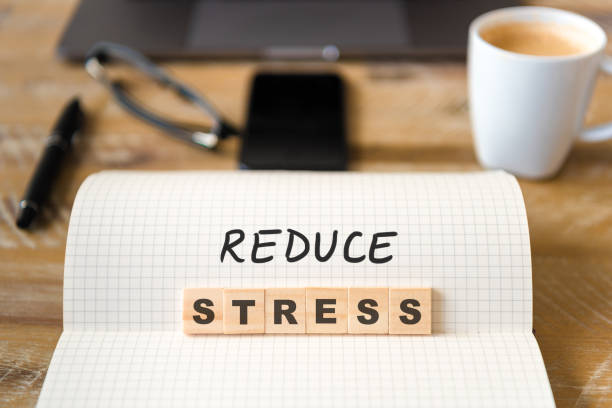
In today’s fast-paced world, stress and anxiety have become ubiquitous, affecting millions of people globally. While professional intervention is vital for severe cases, many individuals find relief through natural home remedies. These remedies are not only effective but also accessible, making them a go-to solution for managing stress and anxiety. In this article, we’ll delve into ten natural remedies that can help reduce anxiety and stress using everyday household items. Additionally, we’ll mention some related products available on Amazon.in that can complement these remedies.
1. Breathing Exercises
The Power of Controlled Breathing
Controlled breathing exercises are one of the simplest and most effective ways to manage stress and anxiety. By focusing on your breath, you can calm your mind and reduce the physiological symptoms of anxiety.
How to Practice Deep Breathing:
- Find a Quiet Space: Sit or lie down in a comfortable position in a quiet environment.
- Inhale Slowly: Take a deep breath in through your nose for a count of four.
- Hold Your Breath: Hold your breath for a count of four.
- Exhale Slowly: Exhale through your mouth for a count of four.
- Repeat: Continue this breathing pattern for several minutes until you feel more relaxed.
Benefits: Deep breathing helps in reducing heart rate, lowering blood pressure, and promoting a state of calmness.
2. Aromatherapy with Lavender
Lavender Essential Oil for Calming Nerves
Lavender essential oil is widely known for its calming and soothing properties. The aroma of lavender can help reduce stress levels and promote relaxation, making it a popular choice in aromatherapy.
How to Use Lavender Essential Oil:
- Aromatherapy Steam: Add a few drops of lavender essential oil to a bowl of hot water. Inhale the steam deeply, allowing the soothing aroma to relax your mind and body.
- Diffusion: You can also use a diffuser to spread the calming scent of lavender throughout your living space.
Benefits: Lavender essential oil is known to reduce anxiety, improve sleep quality, and enhance overall well-being.
3. Chamomile Tea
Sip Your Way to Relaxation
Chamomile tea is a natural sedative that has been used for centuries to promote relaxation and reduce anxiety. The gentle, soothing effects of chamomile make it an excellent choice for winding down after a stressful day.
How to Brew Chamomile Tea:
- Steep the Tea: Place a chamomile tea bag or a teaspoon of dried chamomile flowers in hot water. Let it steep for 5-10 minutes.
- Enjoy: Drink the tea before bedtime or during stressful moments to help calm your nerves.
Benefits: Chamomile tea helps in reducing anxiety, improving sleep, and soothing digestive issues.
4. Warm Baths with Epsom Salt
Relax and Unwind with a Therapeutic Bath
Taking a warm bath with Epsom salt is a time-tested remedy for relieving stress and muscle tension. The magnesium in Epsom salt helps to relax muscles and calm the mind, making it an ideal addition to your self-care routine.
How to Prepare an Epsom Salt Bath:
- Add Epsom Salt to Bathwater: Pour 1-2 cups of Epsom salt into your bathwater.
- Soak: Immerse yourself in the warm bath for 20-30 minutes, allowing the Epsom salt to work its magic.
Benefits: Epsom salt baths help in reducing stress, alleviating muscle pain, and promoting relaxation.
5. Herbal Teas
A Soothing Cup to Calm Your Nerves
Various herbal teas, such as chamomile, peppermint, and lemon balm, have soothing properties that can help reduce anxiety and stress. Enjoying a cup of your favorite herbal tea can be a simple yet effective way to unwind.
Popular Herbal Teas for Relaxation:
- Chamomile Tea: Promotes relaxation and improves sleep quality.
- Peppermint Tea: Soothes digestive issues and reduces tension.
- Lemon Balm Tea: Calms the mind and reduces stress.
Benefits: Herbal teas offer a natural way to alleviate anxiety, improve digestion, and promote overall well-being.
6. Mindfulness Meditation
Cultivating Calm Through Mindfulness
Mindfulness meditation is a powerful practice for managing stress and anxiety. By focusing on the present moment and practicing non-judgmental awareness, mindfulness can help you develop a more resilient mindset.
How to Practice Mindfulness Meditation:
- Find a Quiet Space: Sit comfortably in a quiet environment.
- Focus on Your Breath: Close your eyes and pay attention to your breath. Notice the sensation of breathing in and out.
- Observe Your Thoughts: If your mind starts to wander, gently bring your focus back to your breath. Observe your thoughts without judgment.
Benefits: Mindfulness meditation helps in reducing anxiety, improving concentration, and fostering emotional resilience.
Conclusion
Managing stress and anxiety naturally with home remedies using everyday household products is both convenient and cost-effective. However, it’s important to remember that these remedies may work differently for each person, and results can vary. If your stress and anxiety persist or worsen, consult a healthcare professional for proper evaluation and guidance.



